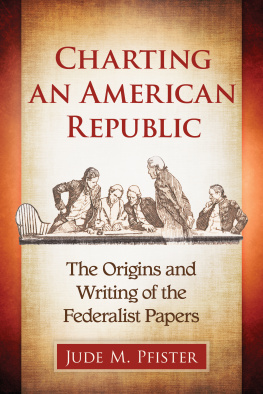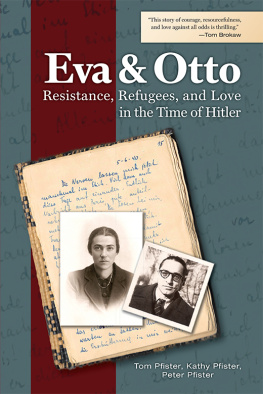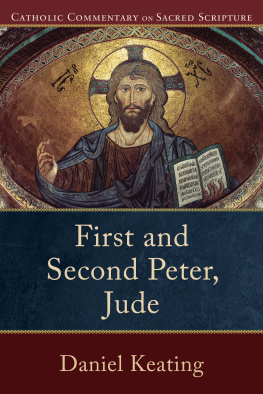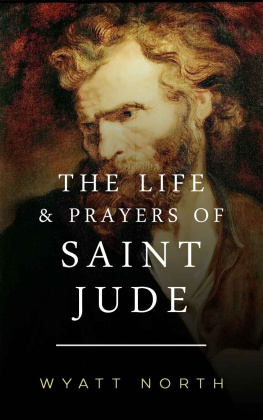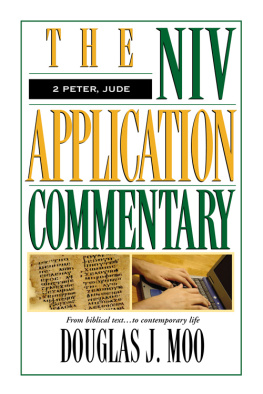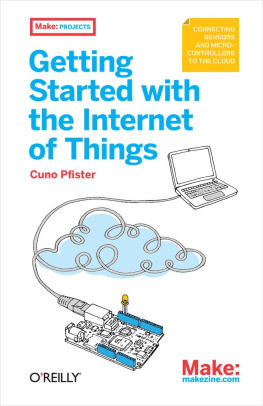

Published by The History Press
Charleston, SC 29403
www.historypress.net
Copyright 2010 by Jude M. Pfister
All rights reserved
Front cover images: Courtesy of the Genealogical and Memorial History of the State of New Jersey and Harpers Ferry Center National Historical Park Art Collection.
First published 2010
e-book edition 2013
Manufactured in the United States
ISBN 978.1.62584.236.7
Library of Congress Cataloging-in-Publication Data
Pfister, Jude M.
The Fords of New Jersey : power and family during Americas founding / Jude Pfister.
p. cm.
Includes bibliographical references and index.
print edition ISBN 978-1-60949-007-2
1. Ford family. 2. Morristown (N.J.)--Biography. 3. Morris County (N.J.)--Biography. 4. Morristown (N.J.)--Social life and customs--18th century. 5. Morristown (N.J.)--Social life and customs--19th century. 6. Power (Social sciences)--New Jersey--Morristown--History. 7. Families--New Jersey--Morristown--History. 8. Businessmen--New Jersey--Morristown--Biography. 9. Iron industry and trade--New Jersey--Morristown--History. 10. Morristown (N.J.)--Economic conditions. I. Title.
F144.M9P44 2010
974.974--dc22
2010042644
Notice: The information in this book is true and complete to the best of our knowledge. It is offered without guarantee on the part of the author or The History Press. The author and The History Press disclaim all liability in connection with the use of this book.
All rights reserved. No part of this book may be reproduced or transmitted in any form whatsoever without prior written permission from the publisher except in the case of brief quotations embodied in critical articles and reviews
To my wife, MiriamSelect members of the Ford Family of Morris County
John Ford | Elizabeth (Freeman) Ford |
circa 16751721/2 | 16811772 |
Jacob Ford Sr. | Hannah (Baldwin) Ford |
17051777 | 17011777 |
Jacob Ford Jr. | Theodosia (Johnes) Ford |
17381777 | 17411824 |
Gabriel Ford | Frances (Gualdo) Ford |
17651849 | 17671853 |
Henry A. Ford | Jane (Millen) Ford |
17931872 | 1804circa 1867 |
CONTENTS
PREFACE
In many ways, this book is a logical follow up to The Jacob Ford Jr. Mansion; The Storied History of a New Jersey Home. While both books complement each other, they are also meant to be stand-alone works. This work will concentrate on the way in which the family became important through the iron industry and their utilization of the means at their disposal to allow for their financial and political rise beginning in 1701. This will be accomplished by looking at the various aspects of the society in which the Fords lived. Greater emphasis will be given to the wider community in an effort to portray the societal motivations that impacted the family. Therefore this work is not a genealogical study, and it will offer little for anyone interested solely in that pursuit.
The story of the Ford family in Morris County, New Jerseyfor the purposes of this bookcovers about 175 years, from 1701 to 1873. This period represents the arrival of John Ford in the colony and the establishment of the Ford line that will ultimately lead to Henry A. Ford, whose death occurred in 1872. Henry Ford, the great-great-grandson of John Ford, initiates the sale of the last and the most visually significant portion of the Ford family legacy in Morristown: the mansion on the plot of land that had been in the family since the early eighteenth century. The mansion was a symbol of the familys success when it was built in 1772 and represented the financial possibilities available in the burgeoning colonial American economy. By 1873, it was a symbol of the past and held little appeal to the descendants as an ancestral seat.
Fully integrated and well established as a founding American family, although not of the Mayflower family variety, the Fords by 1870 had grown in their view of the historical past relating to the mansion. The almost worshipful type of history (bordering on a religious fervor) that came to dominant America by 1876, the year of the American centennial, seemingly did not appeal to that generation in 1873. The Fords had played their role as a family with significant contributions to Americas founding decades. More importantly, the mansion had played its role. It was time for the Fords and their mansion to enter history.
With so little personal information about the Fords available, much of the story will by necessity be drawn from those records that show the Fords from a business perspective, and only peripherally approach their personal lives. From this, a plausible outline of the lives they led will emerge. There are some exceptions: the later family members tend to have more surviving manuscripts pertaining to them; also, there is just enough remaining of Theodosia Fords business activities to piece together a view of this forgotten and overlooked seminal family figure. Finally, this work seeks to examine an aspect of the Fords life that will enable readers to look at one segment of the challenges they faced in the transition from colonist to citizen.
This work claims no comprehensiveness outside of the several specific episodes covered. There is much, much more to the Ford story than is contained herein. It is hoped that other researchers and writers with the time and energy to study the array of manuscripts left behind from a multitude of sources will be inspired by this short introduction to the Fords lives, their work and the world in which they lived.
ACKNOWLEDGEMENTS
Special thanks are due to Bette Epstien of the New Jersey state archives, who graciously provided copies of the wills of several generations of Fords from the state archives collection. Special thanks to Alan Shaw of the Washington Association of New Jersey. And special thanks as well to Suzanne Hahn of the Indiana Historical Society. Christine Jochem of the Morristown Public Library graciously made her collection available, and Bonnie-Lynn Nadzeika of the Morris County Historical Society granted permission to quote widely from an exhibit catalog. Kevin Perry is also to be noted for developing the charts found in that come from the exhibit catalog prepared by the Morris County Historical Society. Thanks are due as well to Whitney Tarella, Amber Allen and to The History Press, an enormously talented and professional staff that deserves acknowledgement.
The men and women of the Washington Association of New Jersey and the National Park Service are ultimately to be thanked for pursuing the Ford family papers when they came up for sale in the early 1970s. Their vision and aspiration for the Morristown National Historical Park (NHP) helped to move the park beyond the narrow confines of Washington hagiology. Through their foresight, they opened an entirely new approach to the study of Morristown NHP. No longer just another Washington slept here site, which demanded a perfunctory visit, the Ford mansion now had an individual life through its builders, the Ford family. It had a family to speak for themselves through their papers, and however limited, it allowed them to tell their story after two hundred years.




